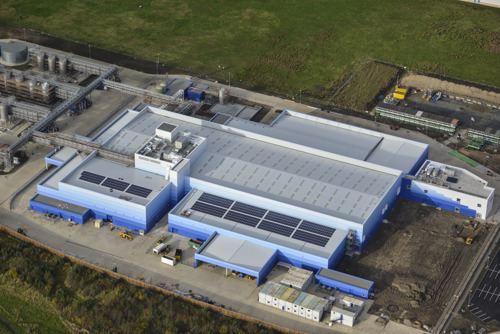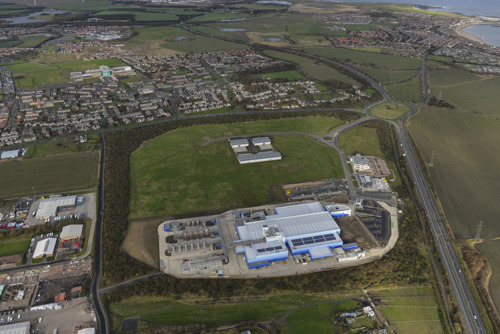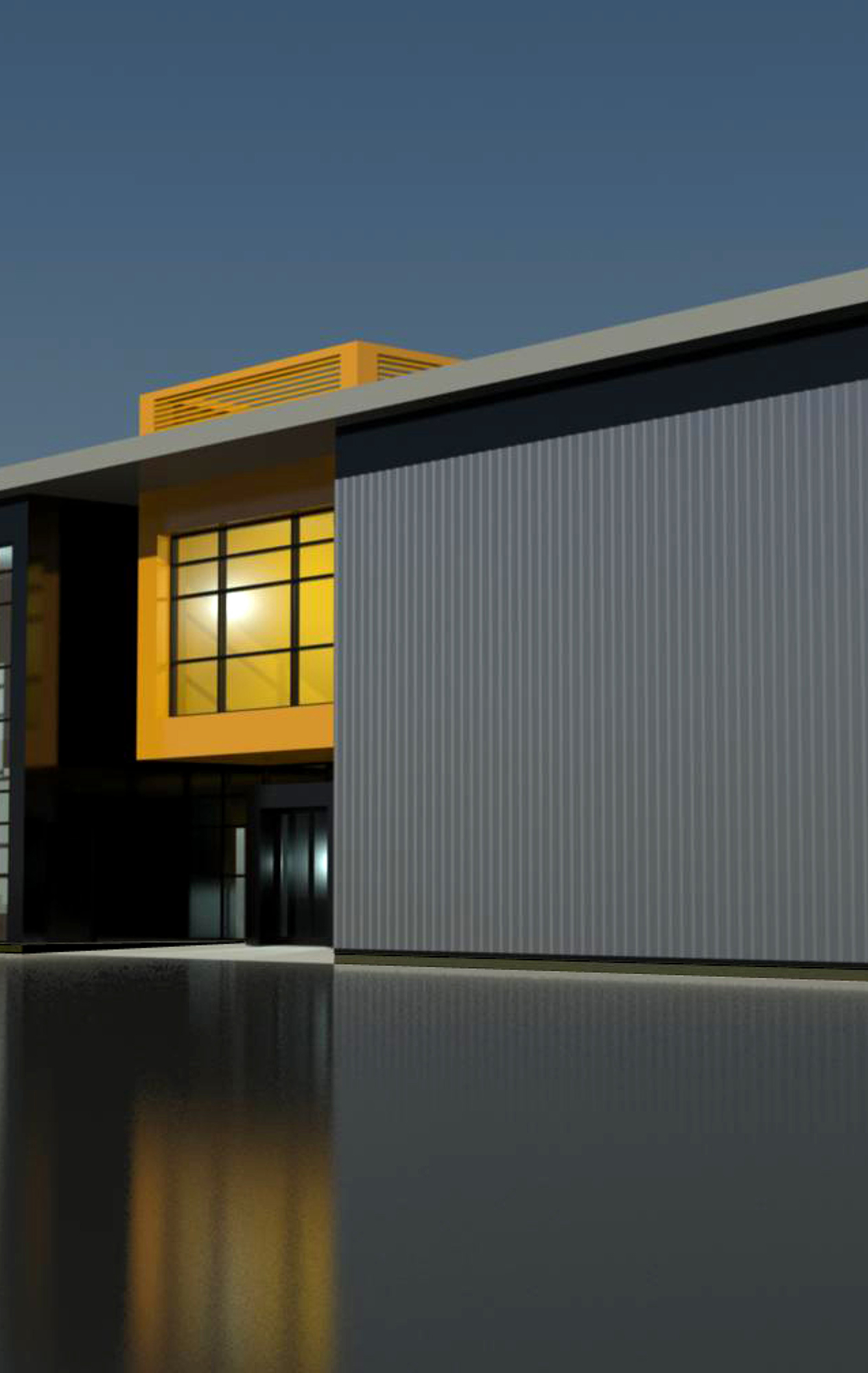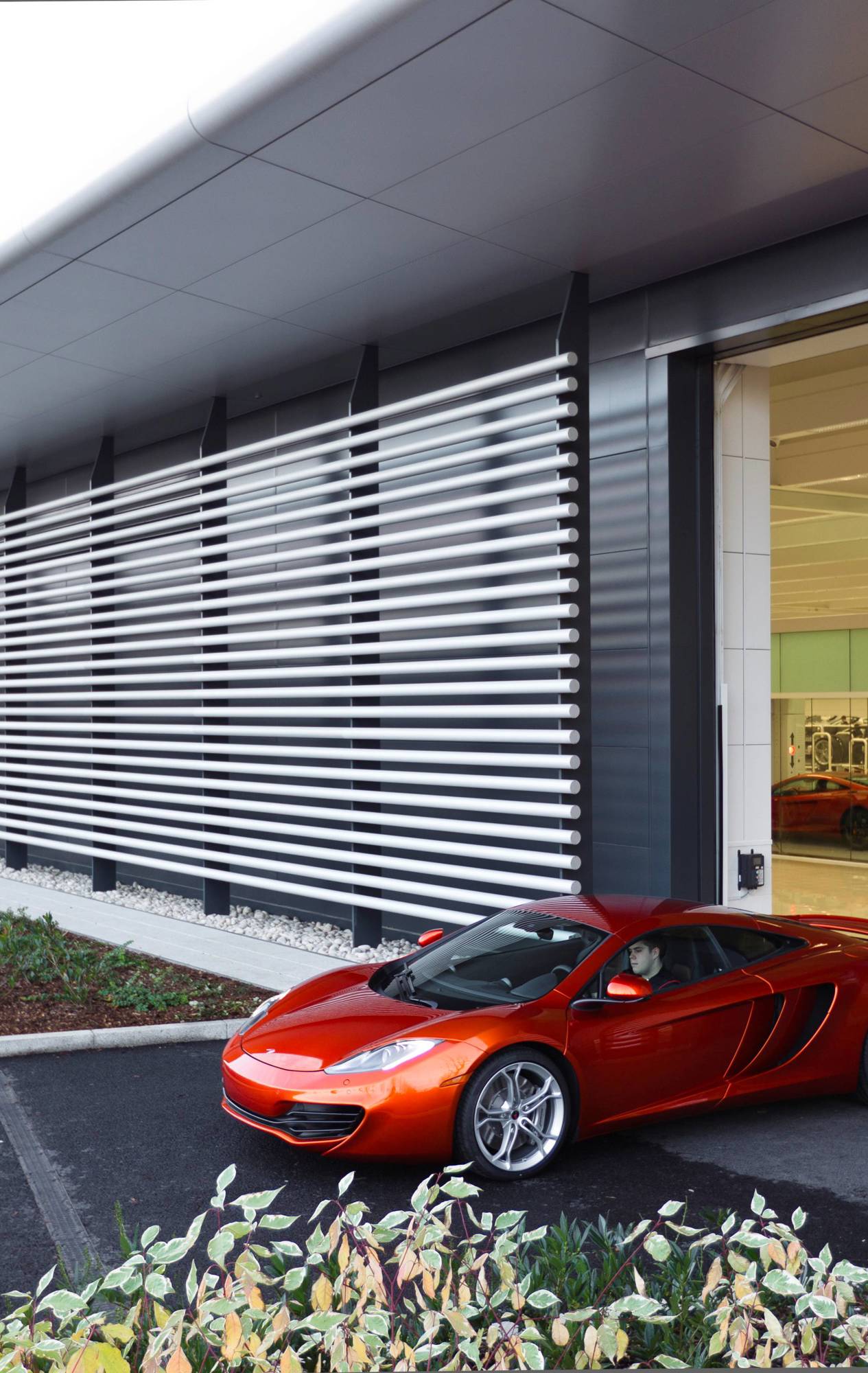- Client: AkzoNobel
- Sector: Industrial
- Value: £24m
- Size: 16,500m²
- Region: North East
- Services: Pre-Construction, McAlpine Design Group, McAlpine Lifting Solutions, Construction
- Completion Date: 2013
AkzoNobel Paint Manufacturing Facility: A high-tech, sustainable production hub
The AkzoNobel Paint Manufacturing Facility in Ashington is a 16,500m² high-tech production plant designed for efficiency and sustainability. Incorporating advanced process integration, 3D BIM coordination, and renewable energy solutions, the facility set new benchmarks for industrial manufacturing.
AkzoNobel Paint Manufacturing Facility, Ashington, Northumberland
AkzoNobel set out to create the world’s most advanced and sustainable paint manufacturing facility at its Ashington site. Our role was to turn this vision into reality by designing and delivering a high tech, process intensive plant that now serves as the heart of its UK decorative paints operation.
The project involved the construction of a 16,500m² main production facility equipped with state-of-the-art processing installations. Additionally, the development incorporated an office building, gatehouse, substations, a storage tank farm, and an energy centre to power the entire site. The complexity of the process plant installation required meticulous planning, seamless collaboration, and cutting edge technology to integrate every element efficiently.
The plant's successful delivery is testament to our expertise in sustainable construction and complex process intensive builds. By combining innovation, meticulous planning, and a commitment to sustainability, we helped AkzoNobel set new standards for environmentally responsible industrial development.
Project summary
Coordinating process installation with construction
From preconstruction and design integration to construction, lifting solutions, direct labour, and aftercare, our in-house teams played a pivotal role in delivering the project to the highest industry standards.
One of the key challenges was coordinating the intricate structural design with sophisticated process equipment. By working closely with our novated designers who utilised advanced 3D modelling software, we successfully integrated process elements into the wider construction. This technology helped us detect clashes before they became issues and optimise sequencing for streamlined delivery.
We also factored future maintenance strategies into the design, ensuring long-term operational efficiency.


Sustainability at the core
To help meet our client's ambitious sustainability goals, we incorporated several key features to minimise the facility’s environmental impact:
- A biomass boiler with gas backup was installed to reduce reliance on non renewable energy sources.
- A rainwater harvesting system was incorporated to supply process water, significantly reducing mains water consumption.
- Roof mounted photovoltaic cells were integrated into the design to enhance energy efficiency. We also made significant modifications to facilitate safe maintenance access while maximising renewable energy generation.
These initiatives set a new benchmark for sustainable engineering in industrial development, reinforcing AkzoNobel’s commitment to environmental stewardship.
Accommodating evolving operational needs
The project was executed under an NEC3 Engineering and Construction Contract, a framework designed to promote collaboration and effective risk management. Throughout the project, we successfully managed more than 240 compensation events and contractual adjustments to accommodate evolving operational needs while keeping the programme on track.
One of the most significant logistical challenges was ensuring seamless site operations while simultaneously constructing a £6 million headquarters for Bernicia Group within the same business park. With both projects sharing a single access route, we developed and implemented a joint traffic management plan to maintain smooth operations. Through open communication, formal coordination meetings, and carefully scheduled deliveries, we minimised disruption and ensured steady progress on both projects.


Prioritising safety and wellbeing encouraged productivity
Safety was a top priority throughout, the 850,000 hours worked on site without a reportable injury demonstrating our unwavering commitment in this area. Beyond compliance, we actively promoted workforce wellbeing through a dedicated healthy lifestyle campaign, health promotion events, and onsite wellbeing clinics. By prioritising both safety and wellbeing, we ensured a positive and productive working environment.
Industrial projects
-
![Wide-angle shot of warehouse exterior with HGV parking areas]() Read more about
Read more aboutOmega Warrington: Travis Perkins regional logistics centre
Sectors: IndustrialRegion: North West -
![Aerial over the Port Talbot steelworks]() Read more about
Read more aboutHarbourside Port Talbot development
Sectors: IndustrialRegion: Wales -
![Aerial view of Mclaren production Centre And Mclaren Technology Centre]() Read more about
Read more aboutMcLaren Production Centre: Innovation meets efficiency
Sectors: IndustrialRegion: South East











